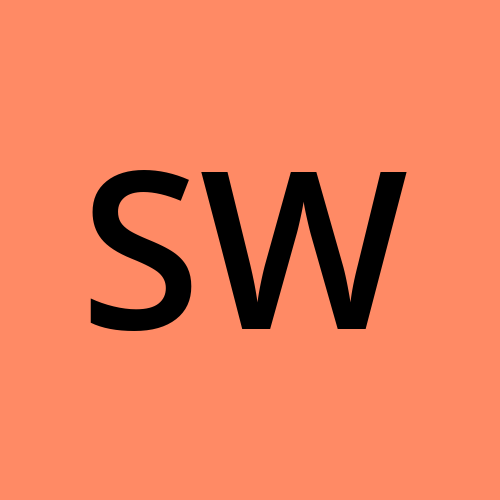What You Need to Start Coding
 Stacey Wells
Stacey Wells
Importance of learning to code
In today's digital age, learning to code is an invaluable skill. It opens up numerous career opportunities, enhances problem-solving abilities, and empowers individuals to create their own software solutions. Whether you're looking to start a new career, advance in your current job, or simply explore a new hobby, coding is a skill that can significantly impact your life.
This article will guide you through the essential steps and resources needed to start your coding journey. From choosing the right programming language to finding the best learning resources and tools, we'll cover everything you need to know to begin coding with confidence.
Choosing a Programming Language
Factors to consider
When selecting a programming language, consider factors such as ease of learning, community support, and the types of projects you want to work on. Some languages are more beginner-friendly, while others may be better suited for specific applications.
Purpose and goals
Your purpose and goals will significantly influence your choice of programming language. If you're interested in web development, JavaScript might be the best choice. For data science and machine learning, Python is highly recommended. Understanding your end goals will help you make an informed decision.
Job market demand
It's also essential to consider the job market demand for different programming languages. Research which languages are most sought after by employers in your desired field. This can increase your chances of landing a job and advancing your career.
Popular languages for beginners
Python
Python is known for its simplicity and readability, making it an excellent choice for beginners. It's widely used in web development, data science, artificial intelligence, and more.
JavaScript
JavaScript is essential for web development, allowing you to create interactive websites. It's a versatile language that runs on both the client and server sides.
Java
Java is a robust, object-oriented language commonly used in enterprise environments, Android app development, and large-scale systems. Its strong typing and extensive libraries make it a solid choice for beginners.
Essential Tools and Software
Text editors and Integrated Development Environments (IDEs)
VS Code
Visual Studio Code (VS Code) is a free, open-source text editor developed by Microsoft. It is highly customizable, supports a wide range of programming languages, and offers numerous extensions to enhance productivity. Its integrated terminal and debugging tools make it a popular choice among developers.
Sublime Text
Sublime Text is a lightweight, fast, and highly customizable text editor. It is known for its speed and efficiency, making it a favorite among many developers. Sublime Text supports multiple programming languages and offers a variety of plugins to extend its functionality.
PyCharm
PyCharm is an Integrated Development Environment (IDE) specifically designed for Python development. Developed by JetBrains, it offers advanced features such as code analysis, graphical debugging, and integration with version control systems. PyCharm is available in both a free community edition and a paid professional edition.
Version control systems
Git
Git is a distributed version control system that allows developers to track changes in their codebase, collaborate with others, and manage project versions. It is widely used in the software development industry due to its efficiency and reliability.
GitHub
GitHub is a web-based platform that uses Git for version control. It provides a collaborative environment where developers can host their code repositories, review code, and manage projects. GitHub also offers features such as issue tracking, project management tools, and continuous integration.
Learning Resources
Online courses and tutorials
Codecademy
Codecademy offers interactive coding lessons in various programming languages, including Python, JavaScript, and HTML/CSS. Its hands-on approach and immediate feedback make it an excellent resource for beginners.
Coursera
Coursera provides a wide range of courses from top universities and institutions. You can find comprehensive programming courses in multiple languages, often accompanied by certificates upon completion.
freeCodeCamp
freeCodeCamp is a non-profit organization that offers free coding lessons and projects. It covers web development, data visualization, and more, providing a hands-on learning experience with real-world projects.
Books and eBooks
"Automate the Boring Stuff with Python"
"Automate the Boring Stuff with Python" by Al Sweigart is a beginner-friendly book that teaches Python through practical projects. It focuses on automating everyday tasks, making it a great resource for those new to programming.
"Eloquent JavaScript"
"Eloquent JavaScript" by Marijn Haverbeke is a comprehensive guide to JavaScript. It covers the language's fundamentals and advanced topics, providing clear explanations and practical examples. This book is highly recommended for anyone looking to master JavaScript.
Practice and Projects
Starting with small projects
Begin your coding journey by working on small, manageable projects. This approach helps you apply what you've learned, build confidence, and gradually tackle more complex tasks. Examples include creating a personal website, developing a simple game, or automating a daily task.
Joining coding communities and forums
Stack Overflow
Stack Overflow is a popular online community where developers can ask questions, share knowledge, and collaborate on coding problems. It's an excellent resource for finding solutions to specific issues and learning from experienced programmers.
Reddit hosts numerous programming-related communities, such as r/learnprogramming and r/programming. These forums provide a platform for discussing coding topics, sharing resources, and seeking advice from fellow learners and professionals.
Contributing to open-source projects
Contributing to open-source projects is a valuable way to gain real-world experience, improve your coding skills, and collaborate with other developers. Platforms like GitHub host a wide range of open-source projects where you can contribute by fixing bugs, adding features, or improving documentation.
Building Good Habits
Writing clean and readable code
Writing clean and readable code is essential for maintaining and scaling your projects. It ensures that your code is understandable not only to you but also to other developers who may work on the project in the future.
Code formatting and commenting
Proper code formatting and commenting are crucial for readability. Use consistent indentation, meaningful variable names, and clear comments to explain the purpose of complex code sections. This practice helps others (and your future self) understand the logic and flow of your code.
Testing and debugging
Regular testing and debugging are vital to ensure your code works as intended. Write unit tests to verify individual components and use debugging tools to identify and fix errors. This habit helps you catch issues early and maintain the reliability of your software.
Staying Updated with Trends
Following influential developers and blogs
Keeping up with influential developers and reading their blogs can provide valuable insights into the latest trends, best practices, and emerging technologies in the coding world. Follow industry leaders on social media platforms, subscribe to their blogs, and engage with their content to stay informed and inspired.
Attending webinars and coding meetups
Participating in webinars and coding meetups is an excellent way to stay updated with the latest trends and network with other developers. These events often feature expert speakers, hands-on workshops, and opportunities to discuss new technologies and methodologies. Look for local meetups, online webinars, and conferences to expand your knowledge and connect with the coding community.
Conclusion
In this article, we've covered the essential steps and resources needed to start your coding journey. We discussed how to choose the right programming language based on factors like ease of learning, purpose, and job market demand. We also explored essential tools and software, including text editors, IDEs, and version control systems. Additionally, we highlighted valuable learning resources such as online courses, tutorials, and books. Finally, we emphasized the importance of practice, joining coding communities, contributing to open-source projects, building good coding habits, and staying updated with industry trends.
Embarking on your coding journey can be both exciting and challenging. Remember that every expert was once a beginner, and the key to success is persistence and continuous learning. Start small, stay curious, and don't be afraid to seek help from the coding community. With dedication and the right resources, you'll be well on your way to becoming a proficient coder. Happy coding!
Subscribe to my newsletter
Read articles from Stacey Wells directly inside your inbox. Subscribe to the newsletter, and don't miss out.
Written by
